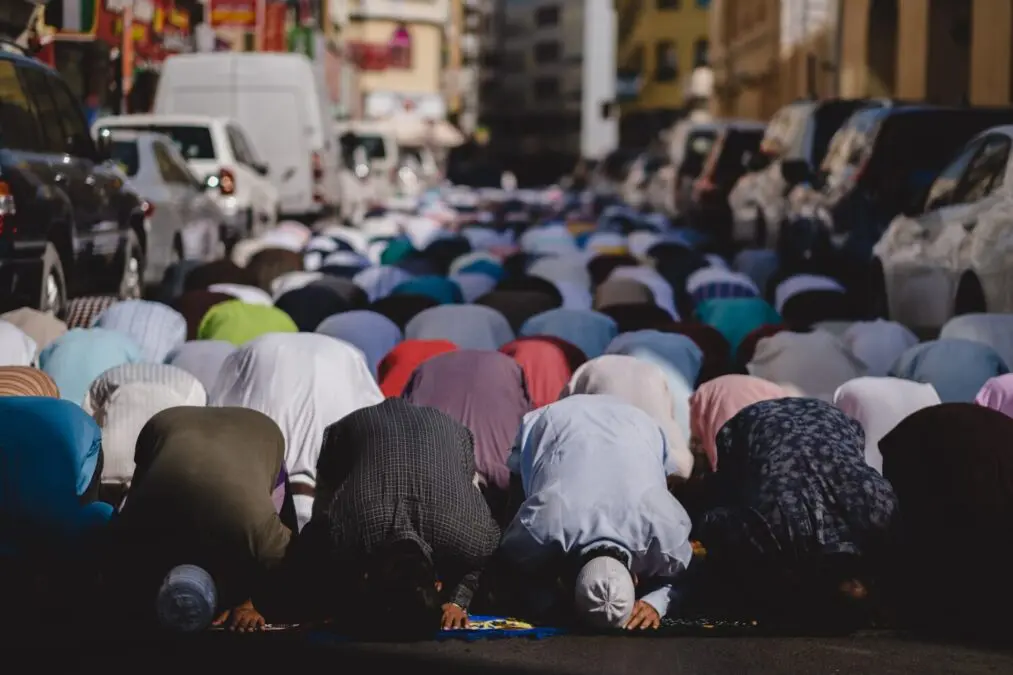Islam is a monotheistic Abrahamic religion which was founded in the 7th century in Arabia by the prophet of Islam Muhammad, peace and salvation be upon him. The followers of Islam, called Muslims, believe in one God, Allah, and consider the Koran as their holy book.
Islamism, on the other hand, is a term used to describe political ideologies that seek to establish a state based on a strict interpretation of Islam. Islamist groups can vary in terms of ideologies and goals, ranging from political militancy to armed violence.
It is essential to distinguish between Islam as a religion and Islamism as a political movement. The vast majority of Muslims practice their faith peacefully and reject violence. However, some radical Islamist organizations have perpetrated acts of terrorism in the name of their political ideals.
It is important to keep informed of the nuances between Islam and Islamism to avoid any confusion and prejudice towards Muslims. Dialogue and mutual understanding are essential to promote peaceful coexistence between different communities.
Islam and the Modern State
The fit between Islam and modern society is a complex subject that generates debates and varied opinions among thinkers, clerics and members of society in general.
Some Muslims believe that there is a fit between Islam and modern society, arguing that the fundamental tenets of Islam can be interpreted in ways that suit contemporary realities and challenges. They argue that Islam promotes the values of social justice, equality, tolerance and respect for human rights, which are essential values in a modern society.
Others may have concerns about the adequacy of certain Islamic teachings or practices with modern societal norms, particularly regarding issues of women’s rights, freedom of expression, sexual diversity, etc. . These issues may be subject to various interpretations and internal debates within Muslim communities.
It is important to note that Islam is a diverse religion with multiple schools of thought and interpretations, which means that views may vary depending on beliefs and cultural contexts.
Ultimately, the fit between Islam and modern society will depend on how Muslims and society as a whole interpret and approach religious teachings in light of the values and norms of today’s society. Dialogue, mutual understanding and the search for solutions that respect everyone’s rights are essential to achieving peaceful and harmonious coexistence.
Islam and living together
Yes, Islam can live in harmony with other religions and beliefs in Europe, and this is already happening in many European countries. Europe is a diverse continent that is home to a plurality of cultures, religions and beliefs, and peaceful coexistence is possible through mutual respect, tolerance and inter-religious dialogue.
Many Muslims live in Europe as religious minorities and are engaged in the social, cultural and economic life of their host countries. They have fundamental rights guaranteed by the laws and constitutions of European countries, which protect freedom of religion and freedom of belief for all citizens.
Harmonious cohabitation also depends on everyone’s ability to respect the democratic values and principles of the society in which they live. This involves respecting the laws of the country, promoting interreligious and intercultural dialogue, and finding common ground to foster mutual understanding.
It is essential that members of different religious communities and beliefs work together to overcome prejudices and misunderstandings, strengthen social cohesion and contribute to the diversity and cultural enrichment of Europe.
It is important to recognize that challenges may arise in some situations, but by promoting inclusion, respect and recognition of the rights of all, Islam and other religions can live together peacefully and productively in Europe.
Islam and secularism
Yes, it is possible to be Muslim and secular. Secularism is a principle that separates the affairs of state and religion, guaranteeing freedom of religion and the religious neutrality of the state. Being secular means that the state does not adhere to any specific religion and guarantees freedom of belief for all its citizens.
An individual can be both Muslim and secular by adhering to their religious faith while supporting the principle of secularism in the functioning of the state. This means that while he practices his religion in his personal and spiritual life, he also supports respect for the religious freedom of all people, regardless of their beliefs or beliefs.
Many Muslims in secular countries around the world live this duality, integrating their faith into their daily lives while respecting the laws and principles of secularism in their country.
It is important to recognize that the interpretation of secularism and religion may vary across countries and cultural contexts. However, it is entirely possible to be Muslim and secular by adhering to the fundamental values of respect, tolerance and peaceful coexistence.
The Fear of Islam in Europe
Fear of Islam in Europe today can be attributed to several complex and interrelated factors. It is essential to note that this fear does not concern the whole of the European population, but that it can be present in certain segments of society.
1. Terrorist attacks: Terrorist attacks perpetrated by individuals claiming to be radical Islamists have marked Europe in recent years. These acts of violence have raised security fears and helped stigmatize some Muslims, despite the fact that the vast majority of Muslims reject violence and condemn terrorism.
2. Media and disinformation: The media can sometimes play a role in creating or amplifying fear by disseminating biased information or highlighting isolated incidents involving Muslims. Misinformation can fuel prejudices and stereotypes.
3. Ignorance of Islam: A limited or erroneous knowledge of Islam can lead to fear of the unknown. Preconceived ideas and stereotypes about Islam can lead to a negative perception of this religion and its followers.
4. Rise of nationalist movements: Some nationalist and xenophobic movements in Europe have exploited fears related to immigration and Islam to promote their political agenda and inflame social tensions.
5. Culture shock: In some cases, cultural differences can create a feeling of mistrust towards Muslims in Europe, especially when it comes to different religious or cultural practices.
It is essential to recognize that fear of Islam is often based on generalizations and misperceptions, and that Islam is not homogeneous, but diverse, with many streams and practices. To overcome these fears and promote a more inclusive society, it is important to foster intercultural dialogue, educate about religious and cultural diversity, and promote mutual understanding and respect between communities.
Islam and anti-Semitism
The attitude towards Jews in the context of Islam is a complex and nuanced subject. The history of Islam includes periods of peaceful coexistence and tolerance towards Jewish communities, but also periods of tension and conflict.
In the Koran, the holy book of Islam, there are positive references to Jews as “People of the Book” and calls for cooperation and mutual respect between Muslims, Jews and Christians. However, there are also passages that can be interpreted negatively towards Jews. As in any religion, the interpretation and understanding of these texts varies between individuals and schools of thought.
Throughout history, there have been periods when Jews were welcomed into Muslim societies, notably during the golden age of medieval Islam, when they flourished intellectually, economically and cultural.
However, there have also been periods of discrimination and persecution of Jews in some Muslim-majority countries, just as in other societies throughout history.
Today, anti-Semitism unfortunately exists in different parts of the world, including among certain Muslim groups. However, it is essential to remember that anti-Semitism does not represent all Muslims, and it is important not to generalize or stigmatize the entire Muslim community because of the actions of a few.
The promotion of inter-religious dialogue, education and mutual understanding is crucial to overcoming prejudices and divisions and to fostering peaceful coexistence between different communities, including between Muslims and Jews.
Originally published at Almouwatin.com







